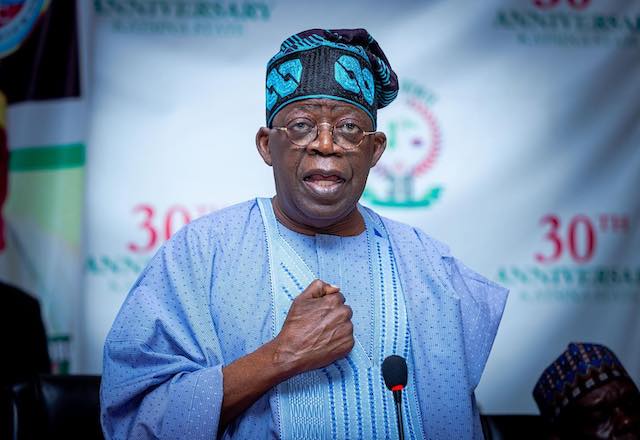President Bola Tinubu has implemented an immediate six-month prohibition on raw shea nut exports, positioning the measure as a strategic intervention to capture greater value from Nigeria’s dominant position in global shea production while empowering female agricultural workers.
The President announced the export suspension on Tuesday, August 26, 2025, following recommendations from the Presidential Food Systems Coordinating Unit. The policy aims to redirect Nigeria’s substantial shea resources toward domestic processing facilities rather than allowing raw materials to generate value abroad.
Speaking on his official social media platform Wednesday, Tinubu characterized the decision as addressing a fundamental economic imbalance that has long disadvantaged Nigerian producers and processors. He emphasized that despite Nigeria’s commanding position in global shea production, the country has failed to capture corresponding economic benefits.
“Nigeria’s shea is our green wealth. We produce nearly 40% of the world’s supply, yet capture less than 1% of its $6.5bn global market. That imbalance ends now,” the President declared, highlighting the stark disparity between production capacity and market share that prompted the policy intervention.
The export restriction specifically targets the protection of supply chains heavily dependent on female labor, with Tinubu noting that women comprise 95 percent of shea nut pickers across Nigeria’s production regions. This demographic focus reflects the administration’s commitment to policies that directly benefit women in agricultural sectors.
“I have approved a six-month suspension of raw shea exports, on the recommendation of the Presidential Food Systems Coordinating Unit, to secure supply for local processors, create jobs, and protect a value chain where 95% of pickers are women,” Tinubu explained, emphasizing the policy’s employment protection objectives.
The President characterized the measure as delivering benefits across multiple stakeholder groups, describing it as “a win for our farmers, for our women, and for Nigeria.” This comprehensive framing suggests the administration views the policy as addressing various economic and social objectives simultaneously.
Implementation responsibility has been assigned to Vice President Kashim Shettima, who will coordinate with industry stakeholders to accelerate domestic processing capacity expansion. The Vice President’s involvement signals high-level government commitment to ensuring the policy achieves its intended economic transformation objectives.
Tinubu outlined ambitious goals for the processing capacity enhancement program, emphasizing that the temporary export restriction must translate into sustainable economic improvements rather than short-term market disruptions. The administration appears focused on using the six-month period to establish foundations for long-term value addition.
The President referenced emerging market opportunities, particularly in Brazil, as evidence that Nigeria can successfully compete internationally with processed shea products rather than raw materials. This international dimension suggests the policy forms part of broader export diversification strategies.
“With new market access opening in Brazil and beyond, we will no longer export poverty and import value. We will create value at home, compete abroad, and deliver prosperity under the Renewed Hope Agenda,” Tinubu stated, connecting the shea policy to his administration’s overarching economic philosophy.
The “export poverty and import value” formulation reflects criticism of economic models that see developing countries supply raw materials to industrialized nations that then sell back finished products at significantly higher values. The administration appears determined to break this cycle within Nigeria’s agricultural sectors.
Nigeria’s shea industry represents a significant economic opportunity given the country’s substantial production capacity and the growing global demand for shea-based products in cosmetics, food, and pharmaceutical industries. However, most economic benefits have historically accrued to international processors rather than Nigerian communities.
The policy’s emphasis on women’s economic empowerment aligns with broader development objectives recognizing that agricultural policies can serve as tools for addressing gender-based economic inequalities. Given women’s predominant role in shea collection, processing investments could significantly impact female economic participation.
Industry observers will closely monitor whether the six-month timeline provides sufficient opportunity to establish processing infrastructure capable of absorbing Nigeria’s substantial shea production. The policy’s success will largely depend on rapid capacity expansion and effective stakeholder coordination.
The shea export suspension represents part of Tinubu’s “Renewed Hope Agenda,” suggesting similar value-addition policies may be considered for other agricultural commodities where Nigeria maintains significant production but limited processing capacity.



















